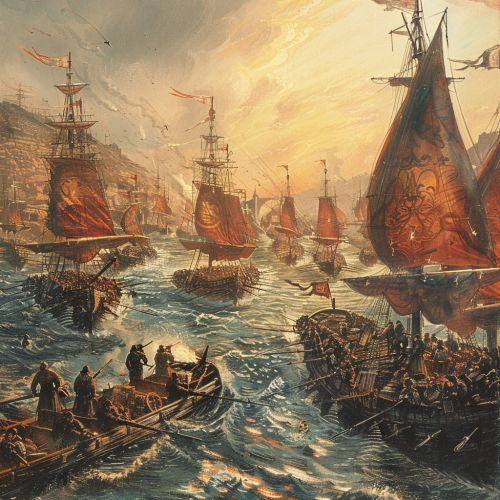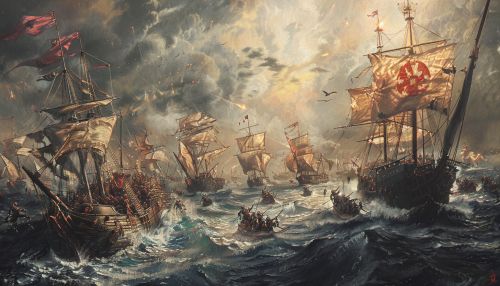Quasi-War
Background
The Quasi-War was an undeclared naval conflict that took place between the United States and France from 1798 to 1800. The war was primarily fought in the Caribbean, with both sides attacking each other's merchant ships. The conflict arose from the failure of the United States to repay debts owed to France following the American Revolutionary War, and the signing of the Jay Treaty between the United States and Great Britain, which France perceived as a violation of previous treaties and an alignment with Britain.


Causes
The primary cause of the Quasi-War was the United States' refusal to repay debts owed to France. These debts were incurred during the American Revolutionary War, when France provided significant financial and military support to the American colonies. The United States argued that these debts were owed to the French monarchy, not the French Republic that had come to power following the French Revolution.
The signing of the Jay Treaty between the United States and Great Britain in 1795 further strained relations between the United States and France. The treaty resolved several lingering issues from the American Revolutionary War, but was viewed by France as a violation of the Franco-American Treaty of 1778, and an indication that the United States was aligning itself with Britain, France's enemy.
Course of the War
The Quasi-War was primarily a naval conflict, with both sides attacking each other's merchant ships in the Caribbean. The United States established the United States Navy to protect its merchant fleet, marking the first time the country had a standing naval force. The United States also authorized privateers to attack French ships, a practice that was common in the era.
The war saw several notable naval engagements, including the capture of the French frigate L'Insurgente by the USS Constellation in February 1799, and the capture of the French privateer Sandwich by the USS Enterprise in May 1800.
Impact and Aftermath
The Quasi-War had significant implications for the United States. The conflict led to the establishment of the United States Navy and the United States Marine Corps, and marked the first time the United States engaged in a military conflict after the American Revolutionary War. The war also led to a reevaluation of American foreign policy, with the United States seeking to avoid entangling alliances and remain neutral in European conflicts.
The war ended with the signing of the Convention of 1800, also known as the Treaty of Mortefontaine, which resolved the outstanding issues between the United States and France. The treaty ended the Franco-American alliance, resolved issues related to the repayment of debts, and ended the Quasi-War.
